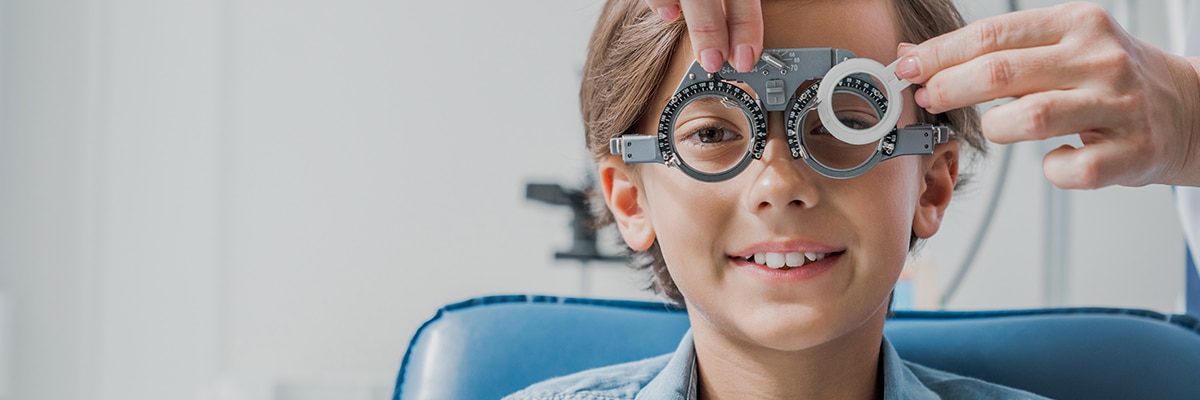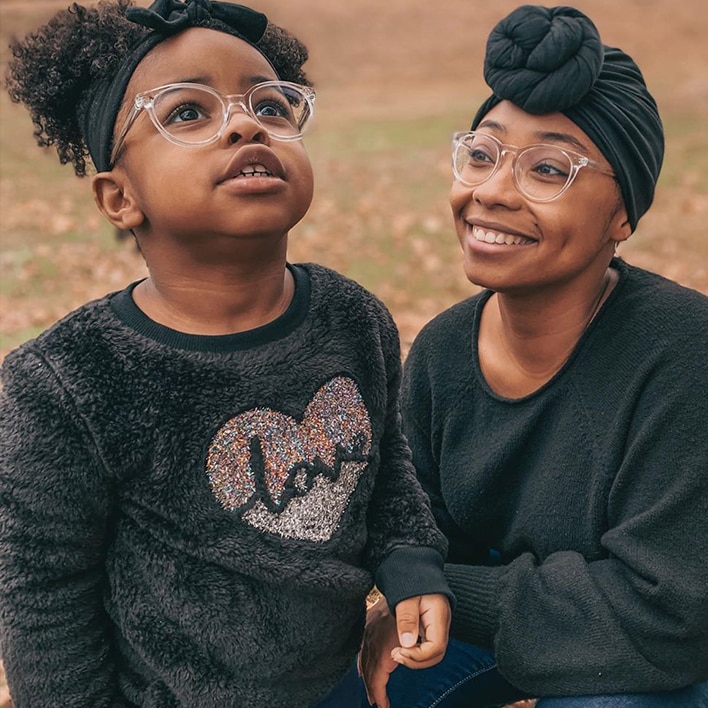In the EBD Blog
Reviewed by Sonia Kelley, OD, MS on July 28, 2023
If you’re a parent, you may have wondered, “Does my child need an eye examination?” or “How often should a child get an eye exam?” These are valid questions, and it’s good when parents ask them, because it’s sometimes easy to miss vision problems in children.
Below is a guide to vision exams for kids, including how often they should receive a comprehensive eye exam, and what happens during an appointment.
How Do I Know If My Child Needs an Eye Exam?
Unless their eyes start to hurt, there’s a sudden change in what they can see, or their vision is particularly poor, most children don’t complain about their eyes or having blurry vision. Many parents who bring their children in for an eye exam are surprised to learn that their child needs vision correction, or that there is an underlying problem with their child’s eye health. For example, most children with a lazy eye (called amblyopia) don’t realize that it’s not normal to have an eye they can’t see very well out of. They often think that everyone probably has one eye that seems to “work better” than the other. Or, because one eye has good vision, it doesn’t always bother them that the other eye is blurry. This is why it’s so important to get your children’s eyes checked on a regular basis. Regular eye exams can make a big difference for your child — one you (and they) didn't even know they needed. Seeing an eye doctor should be a part of their routine health plan, just like visiting the pediatrician or the dentist.
What Happens During a Pediatric Eye Exam?
- A children’s eye exam generally consists of the same components as an adult’s eye exam. The doctor will assess your child’s vision and evaluate things like:
- Visual acuity (visual clarity)
- Eye movements
- Eye alignment
- Color vision
- Pupil reactions
- Peripheral vision
- Overall health of the front and back of each eye and the surrounding anatomical structures
Based on what they see during the exam, the doctor will make suggestions (if needed) to improve your child's vision and eye health. Eye and vision tests performed for children may be modified based on their age, comfort with the process, comprehension level, and ability to follow directions. Luckily, there are many methods at your eye doctor’s disposal to accurately assess a child's vision beyond just asking, “Which is clearer, option one or two?”
When Should a Child Have Their First Eye Exam?
The American Optometric Association recommends that a baby’s first eye exam should occur between 6 and 12 months of age, especially if they are at higher risk of developing an eye condition. Your child should have another eye exam around the time they reach preschool age (around 4 years old). If you notice a problem, it’s a good idea to visit an eye care professional to get your child’s eyes examined. It’s possible your child may need glasses.
Some eye-related issues to look out for include:
- An eye that seems to drift in or out
- Crossed eyes
- Constant rubbing
- Redness and watering
- Hard blinking
- Squinting and other possible eye strain symptoms
- Abnormal clumsiness
- Holding books or tablets extremely close to their face
- Being oblivious to objects at distance
- Covering up one of their eyes
- Headache complaints
Correcting these problems early is important for your child’s vision development. And ensuring they can see clearly will also help their chances of succeeding in school.
How Often Should a Child Get an Eye Exam?
After their initial pediatric eye exam, the American Optometric Association recommends that kids get an eye exam at least once between ages 3 and 5. If your child has good vision and healthy eyes, they should get another eye exam before first grade. After that, they should get an eye exam each year to check how they’re doing. If any problems emerge, you should see your eye care practitioner again sooner. This is especially true if your child ever experiences an eye injury. Don't hesitate to contact your eye doctor for an evaluation. Healthy eyes are important for healthy bodies. You probably take your children to the pediatrician and dentist twice a year each, so it makes sense to include eye exams as part of your annual routine. Besides, most kids think visiting the eye doctor is fun!
Looking for an eye doctor for kids? Find one near you.
SOURCES
1. Comprehensive eye exams. American Optometric Association. Accessed July 2023.
2. What happens at a kid’s eye exam? All About Vision. March 2022.
3. Nine signs children may need an eye exam. The University of Alabama at Birmingham. September 2017.
4. How vision affects your child in school. All About Vision. February 2022.

